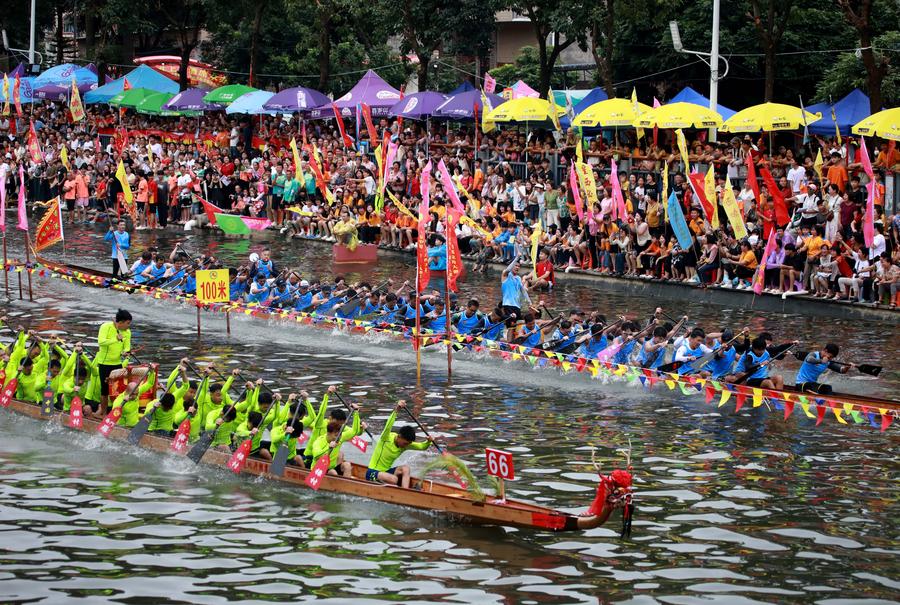
BEIJING: Despite the sticky weather, teams on dragon-headed vessels in south China’s Guangdong Province sliced cleanly through the water once the whistle sounded. The beat of drums reverberated in the air and the audience could be heard cheering around the lake. A total of seven teams participated in this particular dragon boat race — an event that celebrates China’s traditional Dragon Boat Festival — in Houjie Town in the city of Dongguan.
“It is one of the main events of the year and the whole village is always thrilled,” said Wang Yingqiu, one of the paddlers, adding that the teams started training about a month ago. Zhang Kai, who is from east China’s Shandong Province, was one of the many tourists who traveled to Houjie Town to watch the race. “It is a celebration of strength and unity, and the audience can feel the tension like that of a car race,” Zhang said.
The Dragon Boat Festival, also known as the Duanwu Festival, traditionally falls on the fifth day of the fifth month in the Chinese lunar calendar, which was Monday this year. The festival commemorates the famous Chinese poet Qu Yuan, who was also a minister of the State of Chu during the Warring States Period (475 BC-221 BC). Qu drowned himself in the Miluo River in despair after he was accused of treason and banished for offering well-intended advice to the king. Legend has it that upon learning of Qu’s death, locals took to boats on the river to search for his body, dropping rice dumplings called Zongzi, into the water to prevent him from being eaten by fish. This is why Chinese people hold dragon boat races and make Zongzi to eat during the festival.
Alongside these traditions, many people now choose to celebrate the three-day holiday in a modern style, taking cultural tours and traveling, unleashing the potential of the domestic and international tourism markets.
China’s National Immigration Administration has projected a 32.5 percent year-on-year surge in border entries and exits during the Dragon Boat Festival holiday, while railway authorities have estimated some 74 million railway trips will be made across the country from Friday to Tuesday — nearly 4 million more than the figure on record for the same holiday last year. Zhenyuan County in southwest China’s Guizhou Province is estimated to receive up to 200,000 visitors during the festival. These tourists are able to enjoy free rice dumplings and intangible cultural heritage performances, in addition to the traditional dragon boat race.
“We provide a series of activities such as Zongzi preparation, paper-cutting and hanging wormwood, allowing tourists to experience local customs,” said Zhou Changzhi, who manages a homestay that was fully booked ahead of the festival. –Agencies




